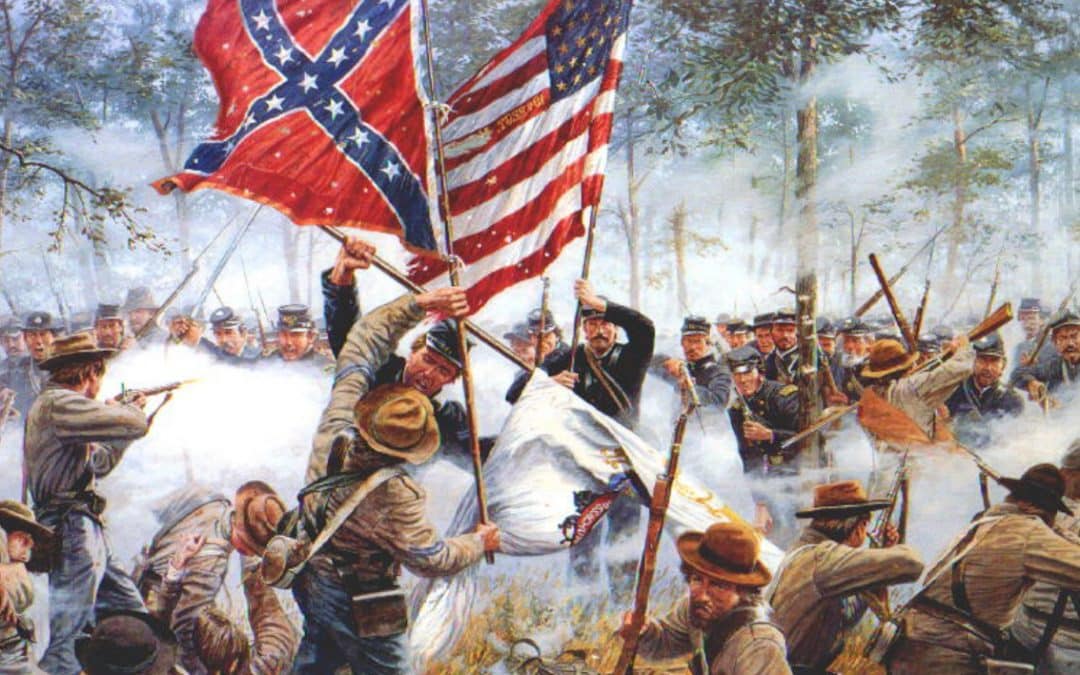The Folly of Unnecessary Battles
The culture wars distract us from the warfare that matters most.
There are battles that need to be fought. Our world is now engaged in a war against a pandemic. This may pale next to the upcoming battle for economic survival. Political candidates are poised to exploit both of these wars in their quest to win the upcoming elections. As politico Rahm Emmanuel said to his operatives, “Let no good crisis go to waste.” So, the culture wars that have polarized America will continue unabated.
Sadly, Evangelicals have been caught up in these cultural battles. Too many are more fixated on saving America than advancing God’s Kingdom. Followers of Jesus ought to be concerned about sexuality, marriage, family, the rights of the unborn, and religious freedoms. We should be just as concerned about sacredness of life in all areas, as well as justice and mercy for the least, weakest, and oppressed in our land.
Here, I want to focus on Evangelical parents and grandparents. What battles are you fighting? I hope that they are more important than the culture wars. Jesus didn’t come to change culture, nor did he call us to do so. He came to seek and to save those who are lost. If enough people become heavenly minded, they just might do some earthly good. But changing this fallen world isn’t the gospel endgame. Jesus said, “What should it profit a person, should he gain the whole world and forfeit his soul?” [Mark 8:36]. To paraphrase Jesus’ words, what would it profit you if your loved ones were heterosexual, pro-life, pro-family, capitalist, flag-waving, G-Rated Americans and lose their souls?
Sun Tzu, in his Art of War, wrote, “There are roads that must not be followed, armies which must not be attacked. There’s no better illustration than what happened on July 1, 1863. It started as a desperate gamble to turn the tide of war. General Robert E. Lee broke out of the Shenandoah Valley at the head of his Army of Northern Virginia. The Civil War was going badly for Abraham Lincoln. Antiwar protestors were rioting in northern cities. Newspaper editors ridiculed him as “the Gorilla from Illinois.” Union generals refused to obey him. Cabinet secretaries plotted his demise. France and England were waiting for an excuse to throw their weight behind the Confederacy.
General Lee’s target was Philadelphia. If he could seize that city, the war-weary Union might sue for peace. But, at the crossroads town of Gettysburg, he caught Union General Meade’s Army of the Potomac out of position. As dawn broke on July 3, 1863, Lee held all the cards. His army could either move north to Philadelphia, or speed south to seize Washington D.C.
Instead, Lee chose to engage Meade’s army in battle, even though the Union forces were larger, better armed, and controlled the high ground. When Jeb Stuart’s cavalry went on a wild goose chase, the Confederate commander lost his eyes. Unable to follow Meade’s troop movements, he was soon outmaneuvered. His generals begged him to retreat. But pride got the best of Lee, and he stubbornly fought on in what became the bloodiest battle in U.S. history. By the time the slaughter ended on July 3, the Confederates had suffered a 38% casualty rate. Their shattered army limped away in disgrace and the sun began to set on the Southern cause.
Sun Tzu was right: it is a great folly to fight unnecessary battles. Like General Lee, we too often get sucked into a foolish fray, and then fight on until all is lost—all because of stubborn pride. When it comes to family conflicts, this rule is inviolate: if one person wins, and the other loses, both end up losing. What good is there in winning the argument if you lose the person you love? Too often we attempt to win our children, grandchildren, friends and neighbors over to our political or social views, only to discover that, like General Lee at Gettysburg, our efforts have lost far more than we ever hoped to win.
Our Millennial and Gen Z loved ones may be on opposite sides from us in the culture wars, but they respect the unvarnished Jesus of the Gospels. Remember his promise: “If I be lifted up, I will draw all people to myself.” [John 12:32] So, spend your energies presenting Jesus to those you love most, and then let the Holy Spirit do the rest. It’s only when he invades their lives that they will be changed. But, even then, be prepared to be surprised. Jesus may not have the same priorities that you have in the changes He works in them. But, whatever transforming He does, it will be so much better than anything you ever imagined—and without all the casualties that come from unnecessary battles.
Dr. Bob Petterson
Legacy Imperative

